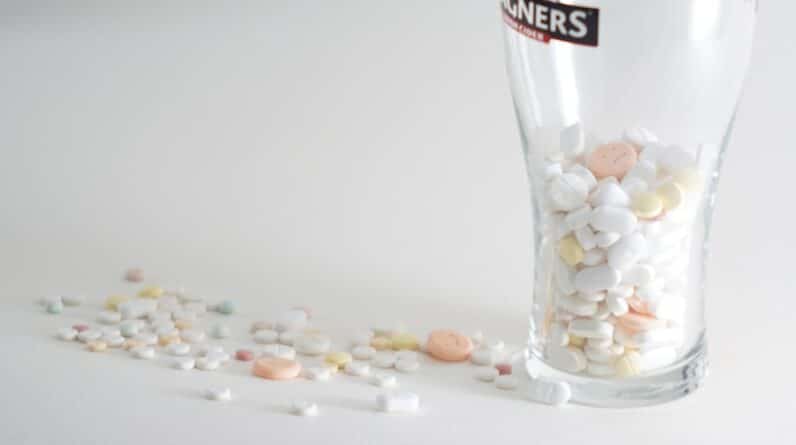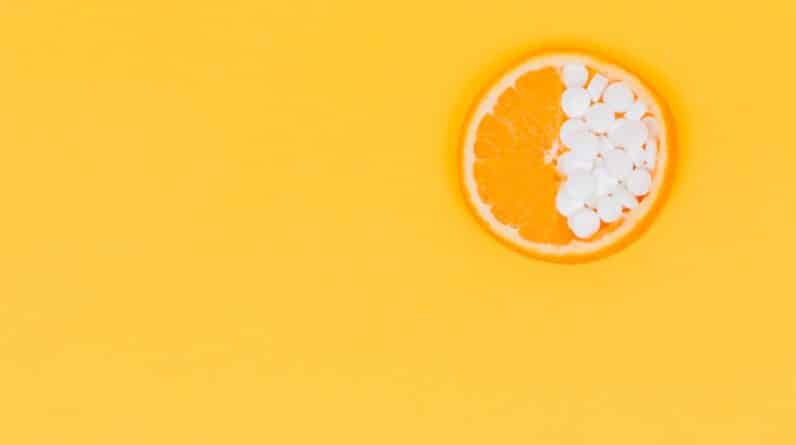Zetia, known generically as ezetimibe, is a medication primarily used to lower cholesterol levels in the blood. It works by inhibiting the absorption of cholesterol from the intestines, thereby reducing the overall amount of cholesterol that enters your bloodstream. If you have been prescribed Zetia, it is likely because your healthcare provider believes that managing your cholesterol levels is crucial for your heart health.
However, it’s essential to understand that while Zetia can be effective, it is not the only option available to you. There are various alternatives to Zetia that you might consider, depending on your specific health needs and lifestyle. Statins, for instance, are a common class of medications that lower cholesterol by blocking a substance your body needs to make cholesterol.
Other options include bile acid sequestrants and PCSK9 inhibitors, which can also help manage cholesterol levels effectively. Additionally, some individuals may prefer to explore non-pharmaceutical approaches, such as dietary changes or natural supplements, to achieve their cholesterol goals. Understanding these alternatives can empower you to make informed decisions about your health and work collaboratively with your healthcare provider to find the best approach for you.
Key Takeaways
- Zetia and its alternatives offer different approaches to lowering cholesterol levels, and it’s important to understand the differences and potential side effects of each option.
- Making dietary changes, such as reducing saturated fats and increasing fiber intake, can significantly lower cholesterol levels and improve overall heart health.
- Regular exercise and physical activity play a crucial role in managing cholesterol levels and reducing the risk of heart disease.
- Herbal and natural supplements, such as red yeast rice and garlic, have been shown to help lower cholesterol levels, but it’s important to consult a healthcare professional before using them.
- Stress management techniques, such as meditation and yoga, can have a positive impact on cholesterol levels and overall heart health. Seeking professional guidance for holistic cholesterol management is essential for personalized and effective treatment.
Dietary Changes to Lower Cholesterol
One of the most impactful ways you can manage your cholesterol levels is through dietary changes. The foods you consume play a significant role in determining your cholesterol levels, and making conscious choices can lead to substantial improvements. For instance, incorporating more fruits, vegetables, whole grains, and legumes into your diet can provide essential nutrients while helping to lower cholesterol.
Foods rich in soluble fiber, such as oats and beans, can help reduce the absorption of cholesterol in your bloodstream. In addition to increasing healthy foods, it’s equally important to limit those that can raise your cholesterol levels. Saturated fats found in red meat and full-fat dairy products can contribute to higher cholesterol levels, so consider opting for leaner cuts of meat and low-fat dairy options.
Trans fats, often found in processed foods and baked goods, should be avoided altogether as they can significantly increase bad cholesterol (LDL) while lowering good cholesterol (HDL). By making these dietary adjustments, you can take proactive steps toward better heart health and overall well-being.
Exercise and Physical Activity for Cholesterol Management

Regular physical activity is another cornerstone of effective cholesterol management. Engaging in exercise not only helps you maintain a healthy weight but also has a direct impact on your cholesterol levels. Aerobic exercises, such as walking, running, cycling, or swimming, can help raise your good cholesterol (HDL) while lowering bad cholesterol (LDL).
Aim for at least 150 minutes of moderate-intensity aerobic activity each week to reap the benefits. Incorporating strength training into your routine can also be beneficial. Building muscle mass can enhance your metabolism and improve your body’s ability to process fats and sugars.
Even simple activities like gardening or taking the stairs instead of the elevator can contribute to your overall physical activity levels. The key is to find activities that you enjoy so that you can maintain a consistent exercise routine. By prioritizing physical activity, you not only support your cholesterol management efforts but also enhance your overall health and vitality.
Herbal and Natural Supplements for Lowering Cholesterol
In addition to dietary changes and exercise, you may want to explore herbal and natural supplements that have been shown to help lower cholesterol levels. One popular option is fish oil, which is rich in omega-3 fatty acids known for their heart-healthy benefits. Omega-3s can help reduce triglycerides and may even raise good cholesterol levels.
Another supplement worth considering is psyllium husk, a soluble fiber that can aid in lowering LDL cholesterol when taken regularly. Garlic is another natural remedy that has garnered attention for its potential cholesterol-lowering effects. Some studies suggest that garlic supplements may help reduce total cholesterol levels and improve heart health.
However, it’s essential to consult with a healthcare professional before starting any new supplement regimen, as they can interact with medications or may not be suitable for everyone. By exploring these natural options alongside traditional methods, you can create a comprehensive approach to managing your cholesterol levels.
Stress Management and its Impact on Cholesterol
Stress is often an overlooked factor when it comes to managing cholesterol levels. Chronic stress can lead to unhealthy lifestyle choices such as poor eating habits, lack of exercise, and increased alcohol consumption—all of which can negatively impact your cholesterol levels. When you are under stress, your body produces hormones like cortisol that can contribute to weight gain and elevated cholesterol levels over time.
To combat stress effectively, it’s crucial to develop healthy coping mechanisms. Mindfulness practices such as meditation or deep-breathing exercises can help you manage stress more effectively. Additionally, engaging in hobbies or activities that bring you joy can serve as a great outlet for stress relief.
By addressing the root causes of stress in your life and finding constructive ways to cope with it, you can create a more balanced lifestyle that supports healthy cholesterol levels.
Mind-Body Practices for Cholesterol Reduction

Reducing Stress through Mind-Body Practices
These practices encourage relaxation and mindfulness, which can be particularly beneficial for managing stress—a key factor in maintaining healthy cholesterol levels. Regular participation in mind-body exercises can help lower blood pressure and improve overall cardiovascular health.
Getting Started with Mind-Body Exercises
Incorporating these practices into your routine doesn’t have to be daunting; even short sessions can yield positive results. Consider joining a local class or following online tutorials that guide you through various poses or movements.
Long-term Benefits of Mind-Body Practices
As you become more attuned to your body and its needs through these practices, you may find it easier to make healthier lifestyle choices that support your cholesterol management goals.
The Role of Essential Oils in Cholesterol Management
Essential oils have gained traction in holistic health circles for their potential therapeutic benefits, including their role in managing cholesterol levels. Certain essential oils, such as lavender and rosemary, are believed to have properties that may support cardiovascular health by reducing inflammation and promoting relaxation. While research on essential oils is still emerging, many individuals find value in incorporating them into their wellness routines.
You might consider using essential oils in various ways—diffusing them in your home for a calming atmosphere or adding a few drops to a warm bath for relaxation after a long day. Additionally, some people choose to apply diluted essential oils topically or use them in massage therapy sessions. While essential oils should not replace traditional medical treatments for high cholesterol, they can complement other lifestyle changes you are making toward better heart health.
Seeking Professional Guidance for Holistic Cholesterol Management
As you navigate the journey toward managing your cholesterol levels holistically, seeking professional guidance is invaluable. A healthcare provider or registered dietitian can offer personalized advice tailored to your unique health needs and goals. They can help you understand the best dietary changes for your situation, recommend appropriate exercise regimens, and discuss any potential interactions with supplements or medications.
Moreover, working with professionals allows you to monitor your progress effectively. Regular check-ins with your healthcare provider can help ensure that the strategies you are implementing are working as intended and allow for adjustments if necessary. By taking a proactive approach and collaborating with experts in the field, you empower yourself to take control of your health journey while effectively managing your cholesterol levels.
In conclusion, managing cholesterol is a multifaceted endeavor that requires a combination of dietary changes, physical activity, stress management, and possibly medication or supplements. By understanding options like Zetia and exploring alternatives alongside holistic practices, you can create a comprehensive plan tailored to your needs. Remember that every small change counts; by taking proactive steps today, you pave the way for a healthier tomorrow.
If you are looking for alternatives to Zetia to lower your cholesterol, you may want to consider taking a holistic approach. One related article that may interest you is Top 5 Supplements Everyone Should Take. This article discusses essential supplements that can benefit overall health and well-being. By incorporating these supplements into your daily routine, you may be able to naturally lower your cholesterol levels and improve your overall health. Additionally, you may also want to explore Supplements for Seniors and Supplements for Weight Management to further support your holistic approach to managing cholesterol.
FAQs
What are some alternatives to Zetia for lowering cholesterol?
Some alternatives to Zetia for lowering cholesterol include making dietary and lifestyle changes, such as increasing physical activity, reducing intake of saturated and trans fats, and increasing consumption of fruits, vegetables, and whole grains. Additionally, natural supplements like red yeast rice, plant sterols, and fish oil may also help lower cholesterol levels.
How effective are holistic approaches in lowering cholesterol?
Holistic approaches to lowering cholesterol, such as dietary and lifestyle changes, have been shown to be effective in many cases. Studies have shown that a healthy diet, regular exercise, and stress management can help lower cholesterol levels and reduce the risk of heart disease.
Are there any potential risks or side effects associated with holistic approaches to lowering cholesterol?
While holistic approaches to lowering cholesterol are generally safe, it’s important to consult with a healthcare professional before making any significant changes to your diet or lifestyle. Some natural supplements may interact with medications or have potential side effects, so it’s important to discuss these options with a healthcare provider.
Can holistic approaches be used in combination with Zetia or other cholesterol-lowering medications?
Holistic approaches to lowering cholesterol can often be used in combination with cholesterol-lowering medications like Zetia. However, it’s important to consult with a healthcare provider before making any changes to your treatment plan, as some natural supplements may interact with medications.
What are some examples of natural supplements that can help lower cholesterol?
Some natural supplements that may help lower cholesterol levels include red yeast rice, plant sterols, fish oil, and soluble fiber supplements like psyllium. These supplements may help lower LDL cholesterol levels and reduce the risk of heart disease when used as part of a healthy lifestyle.






